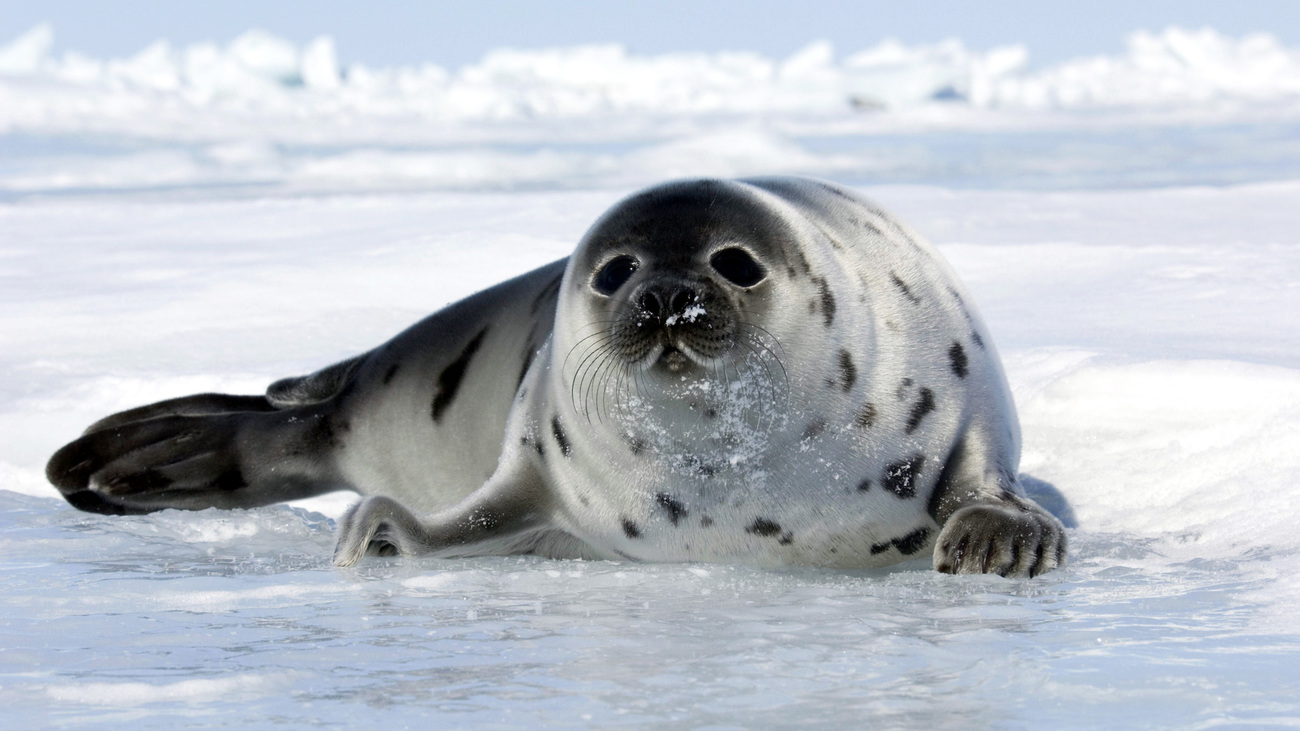Ending the Commercial Seal Hunt - Canada
ifaw was first founded to end the seal hunt2021 Canadian commercial seal hunt begins despite pandemic, public outcry and steep decline in demand
2021 Canadian commercial seal hunt begins despite pandemic, public outcry and steep decline in demand

Brussels / 8 April 2021 – Canada’s commercial seal hunt – reviled by so many across the globe - has officially been declared open with an allowable catch of 400,000 harp seals.
The International Fund for Animal Welfare (IFAW) has led a campaign to end the commercial slaughter of seals since 1969, shining a global spotlight on the cruel, unnecessary and unsustainable hunt. While the scale of the hunt has vastly reduced in recent years, IFAW continues to work towards a complete end to the hunt on animal welfare grounds.
The seals are killed primarily for their pelts, for use in the fur and oil industries. They are struck using a traditional club called a hakapik, or shot from boats.
Staci McLennan, IFAW’s EU Director said, “As IFAW’s founding campaign over 50 years ago, our approach and tactics may have evolved, but our vision has remained the same; to bring an end to the cruel and unnecessary slaughter of baby harp seals in Canada, a practice which is beneath the dignity of such a progressive nation as Canada.”
The 2021 hunt opens against the backdrop of a hugely declining global demand for seal products, international outcry at its cruelty, a late COVID surge in the region of Newfoundland where most of the hunt takes place, and poor ice conditions for ice-breeding seals leading to increased pup mortality.
Due largely to the COVID pandemic, only 440 seals were reported killed in Newfoundland during the entire 2020 commercial hunt, the lowest year for the hunt on record. While in the early 2000s, sealers regularly killed around a third of a million seals a year, the number of seals hunted has been in steep decline over the past 15 years.
McLennan added: “We are so close to ending this. We continue to urge the government of Canada to stop supporting this dying industry and heed the public outcry to bring an end to the seal hunt once and for all.”
Europe has been a major driving force behind the international pressure against the annual hunt, banning the importation of products from ‘whitecoat’ harp seals and blueback hooded seals in 1983, saving over one million newborn seals from slaughter over the next decade.
In 2009, the European Union took a further step of restricting the placement of all seal products on the market, exempting those hunted by indigenous peoples.
When challenged by Canada and Norway, the World Trade Organization (WTO) upheld the EU ban, the first dispute settlement on the basis of public moral concerns over animal welfare. There are now 36 international trade bans on seal products across the globe, which include 27 Member States of the EU. It is estimated that the commercial hunt has decreased by 90% since the European trade bans were first enacted, saving nearly four million seal pups.
***
For more information, images, or to arrange interviews please contact:
Stacey Hedman, IFAW, at email shedman@ifaw.org.
Related content
Every problem has a solution, every solution needs support.
The problems we face are urgent, complicated, and resistant to change. Real solutions demand creativity, hard work, and involvement from people like you.